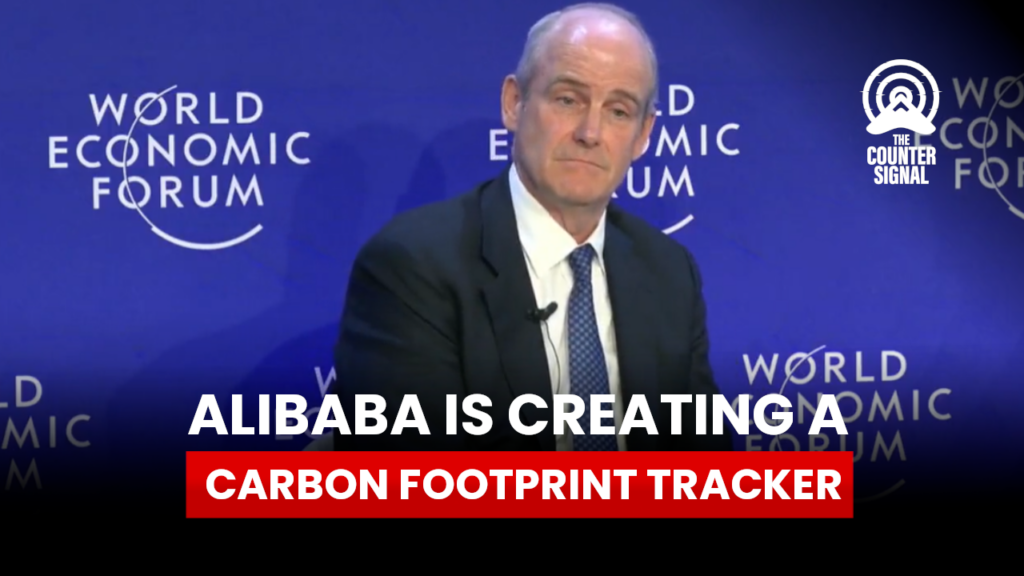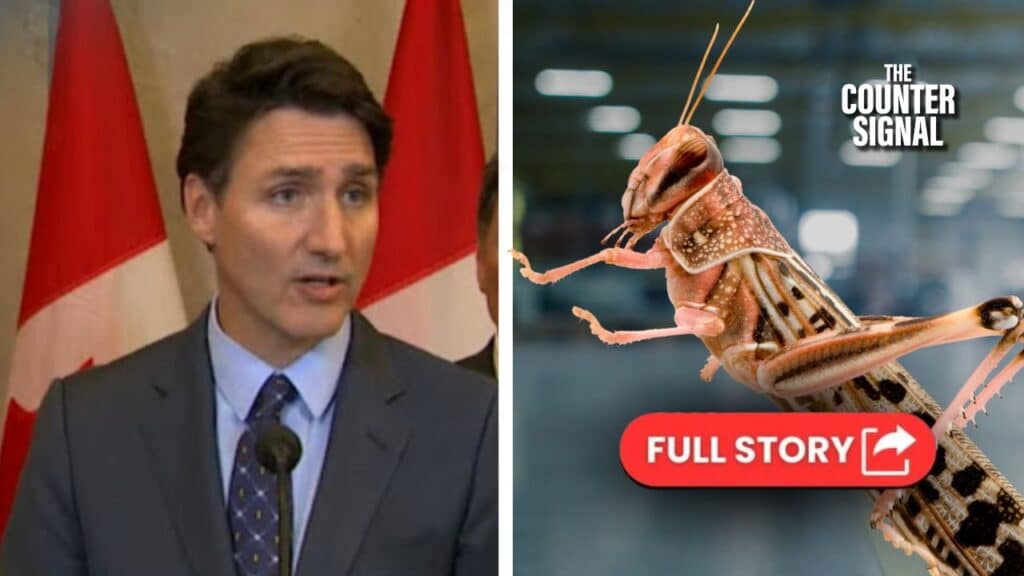Alibaba Group president J. Michael Evans bragged that the multi-billion-dollar company was creating a carbon footprint tracker to monitor people’s consumption around the world.

“We’re developing, through technology, an ability for consumers to measure their own carbon footprint,” Alibaba’s president told the World Economic Forum (WEF).
“What does that mean? That’s where are they travelling, how are they travelling, what are they eating, what are they consuming on the platform. So, individual carbon footprint tracker. Stay tuned. We don’t have it operational yet, but this is something that we’re working on.”
Alibaba Group president J. Michael Evans boasts at the World Economic Forum about the development of an "individual carbon footprint tracker" to monitor what you buy, what you eat, and where/how you travel. pic.twitter.com/sisSrUngDI
— Andrew Lawton (@AndrewLawton) May 24, 2022
While Evans spoke in broad strokes, an article from Alizila, which covers Alibaba corporate news, gets into more specifics about the carbon footprint tracker.
“Alibaba Cloud launched the Energy Expert platform in February this year, allowing people to track their carbon footprint and receive credits worth money when making low-carbon choices,” Alizila writes.
“Expect to earn 200 carbon credits when you lick your plate clean, and 554 credits if you take the subway, according to the measurement system devised by Guangzhou-based certification body CEPREI, in partnership with Alibaba Cloud.”
They continue, saying the “trick is” to develop models that can monitor and translate individual activities into carbon credits and use the models to promote low-carbon lifestyles and communities.
“The platform is designed to encourage people to adopt low-carbon behaviours and be environmentally accountable,” General Manager of Product and Solution at Alibaba Cloud Chen Lijuan told Alizila.
So far, the Alibaba carbon footprint tracker has only been rolled out in China, specifically Xinqiao Shiju, where every resident “has a personal carbon account to monitor power use and carbon emissions. A household account combines the totals for everyone living in the same house,” Alizila reports.
Residents then have to share their energy consumption with an “Energy Expert” who provides “customized suggestions” on how they can reduce their energy use.
While the carbon footprint tracker is still in development and only in China, the CCP isn’t the only government that wants to track its citizens’ carbon footprint.
In late March, the municipality of Bologna, Italy, announced it was rolling out a soft social credit score in the form of a “smart citizen wallet” that can receive “digital points” based on whether a citizen has demonstrated “virtuous behaviour,” according to an article from Corriere di Bologna.
Of course, the top of the list for what’s considered “virtuous behaviour” is reducing your carbon impact.
In an article on the WEF’s agenda (which you can read here), The Counter Signal used a hypothetical carbon footprint tracker as an example of how digital IDs could be used to coerce citizens’ behaviours and reduce their quality of life.
It looks like that technology isn’t hypothetical anymore. It’s here, and it’s just as bad as we imagined.










